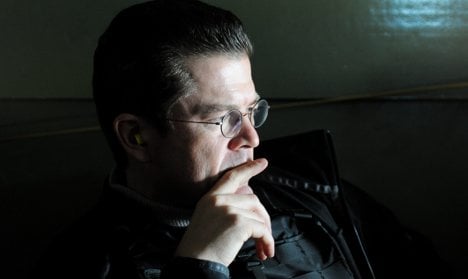There are a lot of ways to get a doctorate in Germany. And that’s where the problem starts.
Depending upon the subject, an academic here can face wildly varying criteria for a dissertation that affect both research time and how a scholar’s insights are presented.
Humanities students spend months or years ploughing through piles of literature to find parts they can quote in their theoretical work in order to formulate new ideas. Scientific dissertations, on the other hand, are normally based on practical applications. And those studying medicine frequently test a new device in a clinic, log the results and eventually knit together a thesis out of it.
Between these extremes, there are almost infinite variations available to academics hoping to receive a doctorate in Germany.
The motives for a doctor title are equally diverse. There are those whose soul is possessed with their subject – either a zoologist consumed with their passion for the migration of butterflies or a literary scholar obsessed with 18th-century French literature. Such people are addicted to the intellectual challenge of being intensively immersed in their chosen subject.
But such obsessives must be in a minority among the doctors that leave university in their mid-20s with summa cum laude – the highest academic distinction. Nowadays, German doctoral theses are written opportunistically, for a variety of reasons: for a medical doctor or an architect, the title is essential, for a chemist or a pharmacist, doctorates have become an unofficial part of their training. Moreover, in many companies only lawyers or people with MBAs are promoted to managing positions.
A doctorate also helps in a lot of less traditional “career jobs” – among archaeologists and philologists, for instance, those putting a “Dr.” in front of their names certainly have better odds when applying for research posts.
We don’t know what motive drove Karl-Theodor zu Guttenberg to write his law doctorate. We also don’t know why he may have failed to correctly attribute some of the quotations he used.
On the question of guilt, which the ombudsman at Guttenberg’s alma mater the University of Bayreuth must now determine, it’s also of no consequence whether someone is pursuing a noble research project, or whether he’s just trying to improve his career prospects. But cheating is unacceptable in either case.
Still, Guttenberg’s case could come to illustrate what our achievement-orientated society means for higher education and academic research. A society that makes its universities more efficient, its graduates younger, and its teaching more practice-orientated will promote the more calculating kind of doctorate.
Making mistakes, working longer on a dissertation, changing topics half-way through, getting mediocre grades – today’s young, success-oriented generation doesn’t permit itself such things anymore. But good research needs time, space, and the freedom to fail.
This commentary was published with the kind permission of ZEIT ONLINE, where it originally appeared in German. Translation by The Local.



 Please whitelist us to continue reading.
Please whitelist us to continue reading.
Member comments